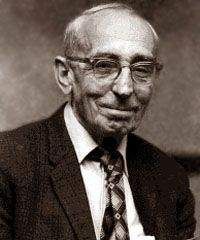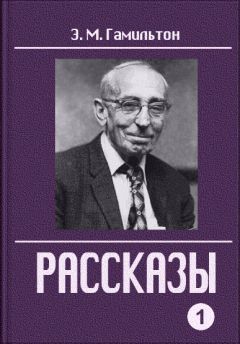Пользователь - o 3b3e7475144cf77c
the same; the servants revered him, having become certain that he was some kind of saint. His
fame spread, and he would be asked to come and heal this person and that. The doctors
resented this, and so did the clergy of the vicinity; it was unsanctioned, a grave violation of the
proprieties.
At least an hour every day Mr. Dingle spent with Madame Zyszynski, and often Beauty was
with him. The spirits possessed the minds of this pair, and the influence of the other world
spread through the little community. Beauty began asking the spirits' advice, and taking it in
all sorts of matters. They told her that these were dangerous times, and to be careful of her
money. The spirit of Marcel told her this, and so did the spirit of the Reverend Blackless—so he
referred to himself. Beauty had never taken his advice while he was living, but assumed he
would be ultra-wise in the beyond. As economy was what Lanny wanted her to practice, he felt
indebted to the shades. Being a talkative person, Beauty told her friends about her "guides," and
Bienvenu acquired- a queerer reputation than it had ever had, even when it was a haunt of
painters, munitions buyers, and extra-marital couples.
Lanny would try his luck with a seance now and then. The character of his spirit life
underwent a change; Marie receded into the background and her place was taken by Marcel and
Great-Great-Uncle Eli Budd. These two friends of his boyhood told him much about
themselves, and held high converse with each other in the limbo where they dwelt; just so had
Lanny imagined them after their death, and it confirmed his idea that he was getting an
ingenious reconstruction of the contents of his own mind. Now and then would appear some
fact which he hadn't known before; but he argued that he might have heard it and forgotten it.
He had had many intimate talks with both his former relatives, and surely couldn't remember
every detail.
His theory was confirmed by the fact that he received a cordial letter from Mr. Ezra
Hackabury, who was trying to keep out of bankruptcy in the town of Reubens, Indiana.
Terrible times, he reported; but he hoped people would still have to have kitchen soap. The
question was being answered in monthly sales reports, and meanwhile Mr. Hackabury pitched
horseshoes behind the barn, as in the old days, and wondered if Lanny had kept up his skill in
this art. When Lanny wrote what the spirits had said, the soapman replied that it was with him
as it had been with Mark Twain: the report of his death was exaggerated. In the course of a
year and a half of intercourse with Tecumseh, Lanny had recorded several cases of the
chieftain's failure to distinguish between the living and the dead, and Lanny drew from this
fact the conclusion which satisfied his own mind—at the same time overlooking a number of
other facts which didn't. In this behavior he had the example of many leading men of science.
X
So passed a pleasant period in the well-cushioned limousine in which Lanny Budd was
rolling through life. He was unhappy about the sufferings of the world, but not so unhappy
that he couldn't eat the excellent meals which the servants of both the villa and the Cottage
prepared; not so unhappy that he couldn't read the manuscripts which Rick sent him, and the
first draft of a Silesian Suite which Kurt submitted. He taught his Pink class, and argued with
the young Reds who came to bait him—and at the same time to borrow money when they got
into trouble. He spent his own funds, and some of Irma's, playing patron to the social
discontent of the Midi; but Irma didn't mind especially, because she had the money, and had
the instinctive feeling that the more the family was dependent upon-her, the more agreeable
they would make themselves. Who eats my bread, he sings my song!
A surprising incident. One afternoon Lanny was in his studio, playing that very grand piano
which he had bought for Kurt, but which was beginning to show the effects of a decade of sea air.
A sunshiny afternoon of spring; Lanny had the doors and windows open, and was filling the
surrounding atmosphere with the strains of Rubinstein's Waltz Caprice. The telephone rang,
for they now had phones in all the buildings on the estate; to Irma it had seemed ridiculous to
have to send a servant every time she wished to invite Beauty over to the Cottage for lunch, or
when she wanted to tell Lanny to come swimming. Now a servant was calling from the villa,
reporting that there was an elderly gentleman who said his name was "Monsieur Jean". Lanny
wasn't usually slow, but this time he had to have the name repeated. Suddenly he remembered
the town of Dieppe.
The Knight Commander of the Bath and Grand Officer of the Legion of Honor had held off for
the better part of a year, until Lanny had given up the idea of hearing from him. It seemed
hard to believe, for Zaharoff was bound to know that he had got something real at that seance
—and how could he bear not to get more? At last he had decided to give way, and
characteristically he wasn't taking half-measures; he had come in person, the first time he had
ever thus honored the Budd family. He honored very few persons in that manner.
"Monsieur Jean" was alone. He had seated himself on the edge of a straight chair, as if he
wasn't sure that he would be welcomed; he had kept his walking-stick, and was leaning on it
with both hands folded over it. The cold blue eyes met Lanny's. Was Lanny mistaken in
thinking that there was an anxious look on the face of the old spider, the old wolf, the old
devil? Anyhow, the younger man greeted his caller with cordiality, and the latter said quickly:
"For a long time I have known that I owed you an apology."
"Don't bother about it, Monsieur Jean," said the younger man. He used that name because
some servant might overhear. "I realized that you were upset. Several times in these seances I
have been told things which didn't happen to be true, and which would have been
embarrassing if there had been others present." Nothing could have been more tactful.
"I should have written to you," continued the other. "But I put it off, thinking you might
come to see me."
"I had no way of knowing what your wishes would be." To himself Lanny added: "You were
trying other mediums, to see if you could get what you want!"
"I decided that the proper thing to do was to make my apologies in person. I will make them
to the medium, if she is still with you."
"She is." Lanny would wait, and make the old man ask for what he wanted.
"Do you suppose it would be possible for me to see her again?"
"You mean, to try another seance?"
"I would esteem it a great favor."
"I can't answer for her, Monsieur Jean. As I explained at the time, it causes her distress if
anything goes wrong. She was very much upset."
"I realize that. I am thoroughly prepared now, and can give you my word that nothing of the
sort will happen again. Whatever comes, I will 'take it,' as you Americans say."
"Perhaps," suggested Lanny, "you might prefer to sit with her alone?"
"If she will trust me, that would be better. You may tell her that I will pay her generously."
"I would beg you not to mention that. We have a financial arrangement with her, and her
time is ours."
"Surely it would be proper for me to pay a portion of the cost?"
"There is no need to raise the question. The amount is small— and you may not get the
results you want."
"If I should get them, and if I might see her now and then, you will surely let me make some
financial arrangement?"
"We can talk about that by and by. First, I will see if I can persuade her to give you another
sitting."
"You have not told her about me?"
"I haven't told anybody. You remember I wrote you that that was my intention."
"You have been very kind, Lanny, and I shall never forget it."
XI
It wasn't an easy matter to persuade Madame Zyszynski. She was still angry with "that rude
old gentleman." What he had done to her was unforgivable. But Lanny told her that the rude
old gentleman had been extremely unhappy, and something had come from Tecumseh which
had broken him down; it had taken him nearly a year to get over it. But now he was penitent,
and had given his word, and Lanny felt sure he would keep it. Madame was used to trusting
Lanny—she was a lonely old woman, and had adopted him as her son in her imagination. Now
she said she would give Monsieur Jean another chance to behave, but first Lanny must explain
to him the physical shock which he had caused her, that she had been ill and depressed for
days, and so on. Tecumseh would doubtless be extremely angry, and would scold the sitter
without the least regard to his dignity.
Lanny dutifully went back and delivered these messages; and the armament king of Europe
solemnly agreed to humble his pride before the chieftain of the Iroquois. Lanny said: "I don't
know what he really is, but he acts like a personage, and you have to treat him that way. You
have given him offense, and you will have to pretend that you are petitioning for pardon."
Lanny said it with a smile, but the Knight Commander and Grand Officer was serious; he
replied that if it would get him a message from the source desired he would submit to torture
from real Indians.
So Lanny took him down to his studio, and showed him some of Marcel's paintings on the
walls—though he probably didn't have much mind for art just then. The medium came in, and
said: "Bon jour, monsieur" Zaharoff answered: "Bon jour, madame" and they seated
themselves in the two chairs which Lanny had moved into place for them. He waited until he
saw the woman going into her trance successfully; then he went out, closing the studio door
behind him.
Beauty and Irma had been in to Cannes for shopping. They came back; and of course it would
no longer be possible to keep the secret from them. No need to, anyhow, for the matter would
doubtless be settled this time; the duquesa would "come through," or Zaharoff would give up.
Lanny took them into his mother's room and told them who had attended Madame's seance in
Dieppe. Both the ladies were excited, for Zaharoff was the same kind of royalty as Irma, and
sovereigns do not often meet their social equals. "Oh, do you think he'll stay for dinner?"
inquired Beauty.
Anyhow, the ladies would dress; but not too much, for Monsieur Jean wouldn't be dressed.
Lanny explained the reason for the name. Then he walked up and down on the loggia in front of
the villa, watching the sun set behind the dark mountains across the Golfe Juan. Many times he
had watched it, as far back as his memory went. He had seen war come, and vessels burning
and sinking in that blue expanse of water. He had watched the tangled fates of human beings
woven on these grounds; love and hate, jealousy and greed, suffering and fear; he had seen people
dancing, laughing and chatting, and more than once crying. Marcel had sat here with his
burned-off face, meeting his friends in the protecting darkness. Here, too, Kurt had played his
music, Rick had outlined his plays, and Robbie had negotiated big munitions- deals. Now
Lanny walked, waiting to hear if the spirit of a noble Spanish lady was going to speak to her
Greek husband through the personality of an American redskin, dead a couple of centuries
and using the vocal cords of a Polish peasant woman who had been a servant in the home of a
Warsaw merchant. One thing you could say about life, it provided you with variety!
XII
The old man came up from the studio alone, walking with his head thrust forward, as he
always did, as if smelling his way. Lanny went to meet him, and he said, with unwonted
intensity: "My boy, this is really a disturbing thing!"
"You got some results?"
"I got what certainly seemed results. Tell me, are you convinced of this woman's honesty?"
"We are all convinced of that."
"How long have you known her?"
"For some eighteen months."
"You think she is really in a trance when she pretends to be?"
"She would have to be a skilled actress if that were not true; we have watched her closely, and
we don't think she is intelligent enough to fool us."
"You are sure she doesn't know who I am?"
"I can't imagine how she could have found out. No one but my father knew about the matter,
and you know that my father is not a loose talker. When you wrote me the appointment, I took
the precaution to tear up your letter and throw it into the sea."
"Lanny, it was just as if my wife was sitting in the next room, sending me messages. You can
understand how important this is to me."
"It is important to all of us, for we all get communications like that."
"She reminded me of things from my childhood, and from hers; things we both knew but which
nobody else knows—at least, not that I can think of."
They went inside, for it grows chilly on the Riviera the moment the sun is down. The old
man wanted to know all that Lanny thought about these phenomena, the most mysterious
which confront the modern thinker. When Lanny told him of the books of Geley and Osty,
Zaharoff took out his notebook and jotted down the names; also the two great volumes of Pierre
Janet—he promised to study them all. His education had been neglected, but now he would try
to find out about the subconscious mind and its powers, so different from those of a munitions
king! He had missed a great deal, and was only beginning to be aware of it when life was
ebbing.
The ladies came in: two most elegant ladies, about whom he had heard; concerning Irma
nothing but good. He was extraordinarily courteous; he hoped for a favor from them, and
asked it as a humble petitioner: would they graciously permit Madame Zyszynski to visit him
in Monte Carlo if he would send his car for her and send her back? Beauty said: "Why,
certainly. That is, of course, if Madame is willing, and I am sure she will be."
"We got along all right this time," said Zaharoff. And Lanny, not untrained in observation,
perceived that the old spider, likewise not untrained, was watching for some hint of the fact that




